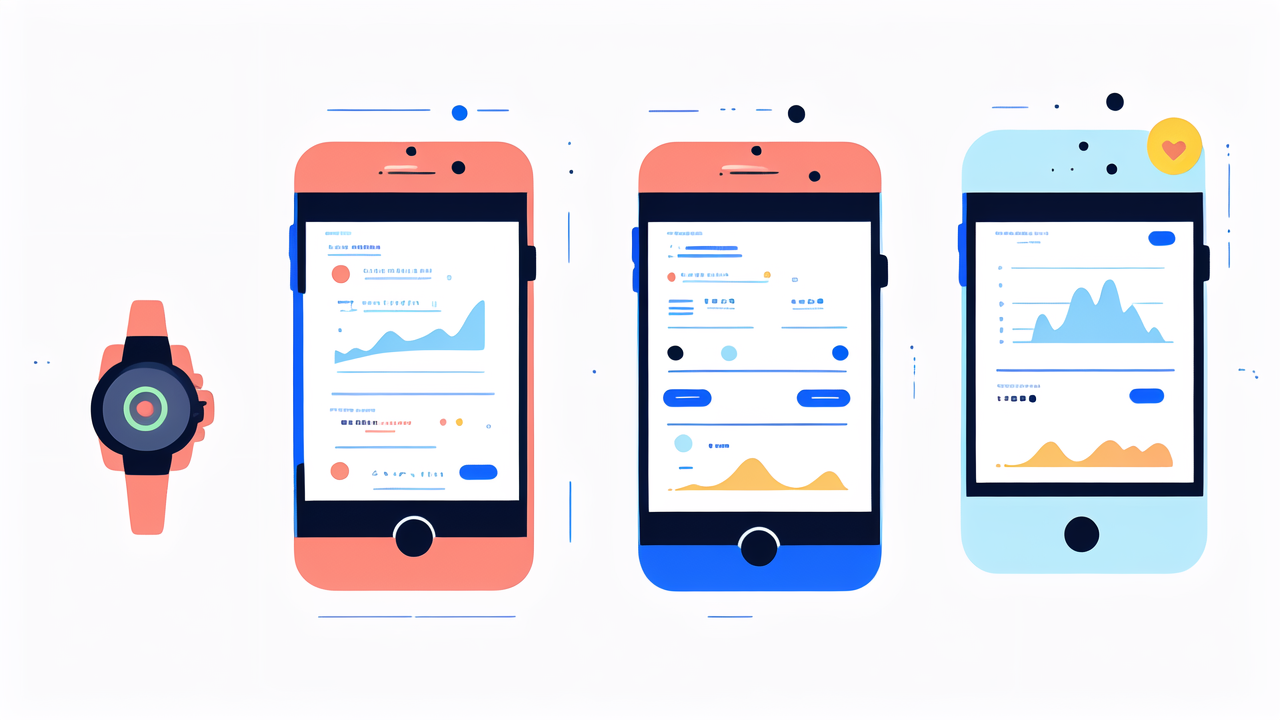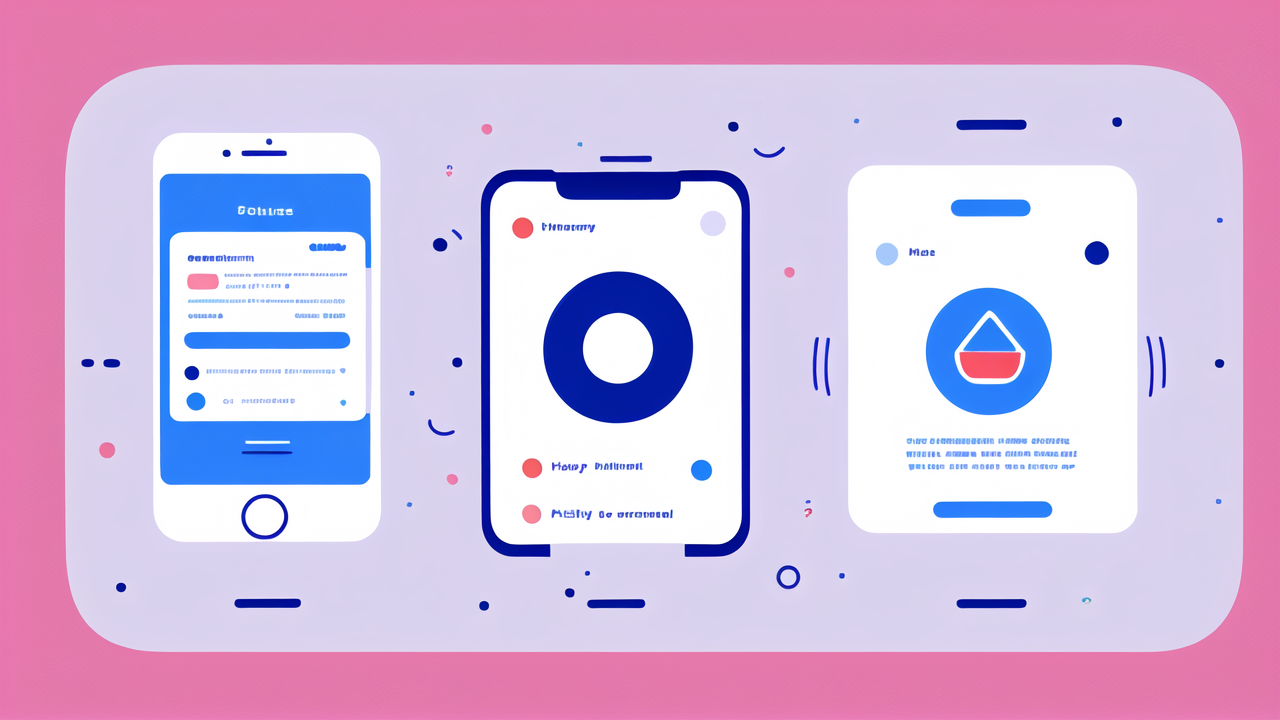Understanding the Role of Smart Watches in Healthcare
The Evolution of Wearable Technology in Health Management
Smart watches have come a long way in health management. They started as simple step counters. Now, they're powerful health tools. Early models just tracked basic fitness data. Today's smart watches can monitor heart rate, sleep patterns, and more.

The tech has improved rapidly. Sensors are more accurate now. They can collect more types of data. This lets smart watches offer deeper health insights. Some can even detect falls or irregular heart rhythms.
As the tech grows, so does its use in healthcare. Doctors now use data from smart watches to help diagnose issues. Patients use them to track their health between visits. This evolution has made smart watches key players in personal health management.
Key Features of Smart Watches for Health Monitoring
Smart watches offer many health monitoring features. Here are some key ones:
- Heart rate monitoring: Tracks heart rate all day
- ECG: Some models can take electrocardiograms
- Sleep tracking: Monitors sleep patterns and quality
- Blood oxygen level: Measures oxygen saturation in blood
- Step counting and activity tracking: Keeps tabs on daily movement
- Stress monitoring: Uses heart rate variability to gauge stress levels
These features help users keep an eye on their health daily. They can spot trends or issues early. This makes smart watches powerful tools for preventive care.
Some watches can even remind users to move or breathe deeply. This helps promote healthy habits throughout the day. As tech improves, we can expect even more advanced features in the future.
Integration with Healthcare Systems and IoT
Smart watches are becoming part of larger health ecosystems. They can connect with other devices and systems. This creates a more complete picture of a person's health.
Many watches can sync data with healthcare apps. This lets users share info with their doctors easily. Some hospitals are starting to use this data in patient care. It helps them monitor patients remotely.
Smart watches also fit into the Internet of Things (IoT). They can connect with smart home devices. For example, a watch might adjust your home's temp based on your body heat. Or it could order healthy groceries when you're low on certain nutrients.
This integration makes health management more seamless. It turns data into actionable insights. As systems improve, smart watches will play an even bigger role in healthcare.
Impact of Smart Watches on Preventative Healthcare
Enhancing Daily Health and Wellness Tracking
Smart watches are changing how we track our health daily. They make it easy to monitor key health metrics. Users can see their activity levels, heart rate, and sleep patterns at a glance.

This constant tracking helps people stay aware of their health. They can spot trends or issues early. For example, a user might notice their heart rate is higher than usual. This could prompt them to check with a doctor.
Smart watches also encourage healthy habits. They remind users to move, drink water, or take breaks. This helps people make small, positive changes every day. Over time, these changes can have a big impact on overall health.
Many watches also track workouts automatically. This makes it easier for people to stay active. They can see their progress and set new goals. All this data helps users take a more active role in their health.
Empowering Users with Personalized Health Insights
Smart watches do more than just collect data. They turn that data into useful insights. These insights are tailored to each user's health profile and goals.
For example, a watch might notice a user's sleep quality is poor. It could then suggest changes to their bedtime routine. Or it might spot that a user's heart rate spikes at certain times. This could lead to tips for managing stress.
These personalized insights help users understand their health better. They can see how their choices affect their well-being. This knowledge empowers them to make healthier decisions.
Some watches even use AI to predict health events. They might warn of an upcoming migraine or asthma attack. This lets users take preventive action. It's like having a personal health coach on your wrist.
Promotions of Healthy Lifestyle through Wearable Technology
Smart watches are powerful tools for promoting healthy lifestyles. They use various features to encourage good habits. Many have built-in reward systems. These give users points or badges for meeting health goals.
Watches often use notifications to prompt healthy behaviors. They might remind users to stand up and move. Or they could suggest taking a moment to breathe deeply. These small nudges can lead to big changes over time.
Some watches have social features too. Users can share their progress with friends. They can join challenges or compete in fitness games. This adds a fun, social aspect to health management.
Many watches also integrate with other health apps and devices. This creates a more complete health ecosystem. Users can track their diet, workouts, and health metrics all in one place. This makes it easier to see the big picture of their health.
By making health tracking fun and easy, smart watches help users stick to their goals. They turn health management into a daily habit. This can lead to long-term improvements in overall health and wellness.
Future Directions and Considerations
Innovations and Trends in Smart Watch Health Features
The future of smart watch health features looks exciting. We can expect to see even more advanced sensors. These might track things like blood sugar or hydration levels. Some companies are working on non-invasive blood pressure monitoring.

AI and machine learning will play a bigger role. Watches may be able to predict health issues before they happen. They could spot early signs of diseases like diabetes or heart problems. This could revolutionize preventive care.
We might see more specialized health features too. For example, watches for people with specific conditions. These could help manage chronic diseases more effectively. Mental health tracking is another area that's likely to grow.
Integration with other health tech will increase. Smart watches might work with smart clothing or implantable devices. This could provide an even more complete picture of a person's health.
As these innovations develop, smart watches will become even more powerful health tools. They'll offer deeper insights and more personalized recommendations.
Regulatory Challenges and Data Integrity Concerns
As smart watches collect more health data, regulatory challenges grow. There are concerns about data privacy and security. Companies need to ensure user data is protected. This is especially important for health information.
There are also questions about the accuracy of smart watch data. Not all features are as reliable as medical devices. This can be an issue if doctors use this data for diagnoses. Regulators need to decide how to handle these new technologies.
Data integrity is another concern. How can we ensure the data is accurate and not tampered with? This is crucial if smart watches are used in clinical settings. There may need to be new standards for wearable health tech.
Another challenge is making sure these devices are accessible to everyone. Health tech should not widen existing health disparities. Regulators might need to address this as smart watches become more important in healthcare.
Ethical Implications of Wearable Health Technology in the United States
The rise of smart watches in healthcare raises ethical questions. One big issue is data privacy. Who owns the health data collected by these devices? How can it be used? There are concerns about insurance companies or employers accessing this data.
There's also the question of constant health monitoring. Is it healthy to track every aspect of our lives? Some worry it could lead to increased anxiety about health. Others say it empowers people to take control of their well-being.
Another ethical concern is the digital divide. Not everyone can afford or use smart watches. This could create a two-tiered health system. Those with access to this tech might get better care. We need to consider how to make these benefits available to all.
There are also questions about responsibility. If a smart watch misses a health issue, who's liable? The user, the manufacturer, or the healthcare provider? These are complex issues that need careful thought.
As smart watches become more integrated into healthcare, we'll need to address these ethical concerns. It's crucial to balance the benefits of this tech with protecting individual rights and fairness.




Leave a comment
This site is protected by hCaptcha and the hCaptcha Privacy Policy and Terms of Service apply.